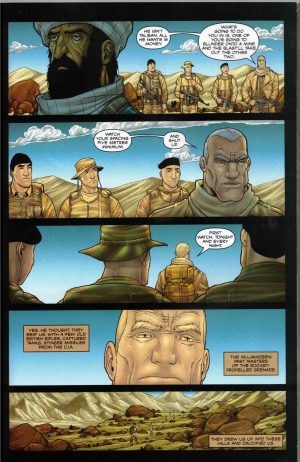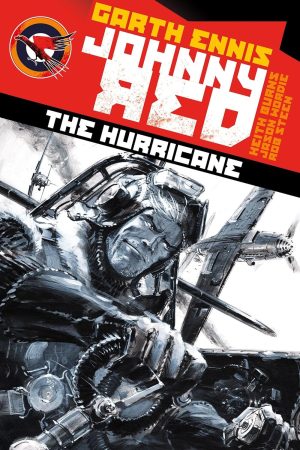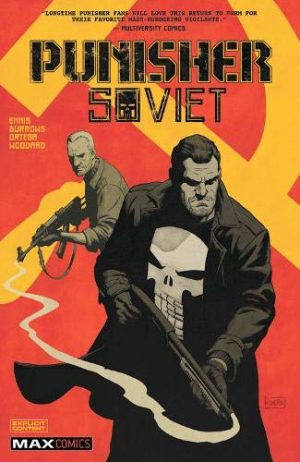Review by Colin Credle
In the remote, inaccessible regions of the Hindu Kush of Afghanistan exists a large enough blind spot to conduct violent acts with little expectation of repercussions or justice. The British SAS, the Russian Spetznatz and the US Forces find themselves in a secret confrontation where the goals, the intentions and the terrain are both murderous and muddled. As always, the Afghans suffer the most collateral damage.
When our Russian protagonist Ivan first appears, the first thing that comes to mind is the Kevin Lacz quote “Beware of an old man in a profession where men usually die young.” Ivan’s extensive experience at surviving war is evidenced by his physical scars, his vigilance and how he reads the intentions of his enemies in the physical terrain in front of him. Ivan is laconic, action focused and possesses a mesmerising knack of survival.
Writer Garth Ennis is well known for gripping war tales, often oddly enough focusing on Russians (see recommendations). 303 refers to an old bullet recovered in Afghanistan, also known as “the Graveyard of Empires.” The soil is soaked in blood and history, as Alexander the Great, the British Empire and the Soviet Union all cut themselves deeply on the jagged edges of the Hindu Kush. And now it’s America’s turn.
Artist Jacen Burrows’ rendering of the soldiers and countries are true, if not simplistic, straight lined and oddly ballooned. As with Ennis’ other works the illustrations don’t distract from the story and the rather bland palette gets the job done without contributing much to the flow.
Ivan survives. He is also resourceful, and two major plot lines keep us invested. The first is Ivan’s leading of a Russian force in Afghanistan – how he reads the terrain, how he reads soldiers’ intentions and how he uses the terrain. Ennis often displays a talent for acerbic wit in these combat situations, but here it’s conspicuously absent.
The second plotline concerns the demise of the American Dream, hollowed out by corporate corruption and greed. The decent people have capitulated, but Ivan has not. Ivan has made it to what appears to be south Texas, and we are quickly brought up to speed on his journey with barely a word balloon. That journey from Siberia via Alaska to Texas itself would have been a welcome addition to the book.
At this point, if we’re still rooting for Ivan, his goal no longer apparent as he’s not reporting to a higher military command with a clear mission. Ivan has gone rogue. The conclusion is a letdown as you’re left wondering who exactly did Ivan ever care about to explain his personal motivations? Everywhere Ivan steps the terrain is saturated with the blood of history, the slaughter of human confrontation. He seems to sense it, be almost aware of it, but what Ivan cares about remains a mystery.





